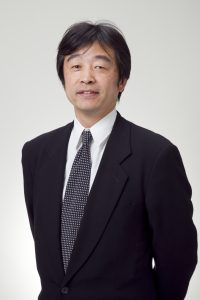Message from the Dean
Addressing Humanity and Human Society Issues
History of the Graduate School of Human and Socio-Environmental Studies
As we progress into the 21st century, now approaching its first quarter mark, the world has grown more affluent than ever. While many enjoy this wealth, we also face new and complex challenges.
Global warming, as one prominent example, highlights our growing awareness of the Earth’s finite resources and the urgent need to consider environmental issues on a global scale.
Human-created environments—our societies—are also plagued with numerous problems. To understand and solve these issues, we must broaden our perspectives, examining them not only through economic, political, legal, and institutional lenses, but also at the levels of individuals, families, communities, municipalities, nations, and the global society.
In addition to natural disasters such as earthquakes, tsunamis, heavy rains, and droughts, we are confronted with man-made disasters: nuclear accidents, environmental pollution, recurring incidents and accidents, war and conflict, hunger and poverty, injustice and discrimination. These challenges require urgent and multifaceted responses.
But these are not the only concerns we face.
Throughout history, human beings have examined their own nature and developed cultures through their relationships with others. Even today—despite advances in science and technology—questions about human relationships, mental health, values, and the meaning of life remain unresolved.
Beyond solving societal issues, it is vital to also revisit and reconsider the challenges that arise within and among people in contemporary society.
To do this, we must engage deeply with the humanities, human sciences, and social sciences, and when necessary, apply cutting-edge technology and current information. We should also pursue interdisciplinary collaboration with fields such as natural sciences, engineering, and medicine, embracing a free and integrative perspective.
The Graduate School of Human and Socio-Environmental Studies at Kanazawa University was established in April 2006. It was formed by merging three existing master’s programs (the Graduate School of Literature, the Graduate School of Law, and the Graduate School of Economics) into a unified master’s program, and by designating the former Graduate School of Social and Environmental Sciences (established in April 1993) as the doctoral program.
This graduate school is a new kind of academic institution, one that aims to tackle modern challenges and contribute to the resolution of pressing human and societal issues.
It is my sincere hope that students will boldly confront these human and social challenges, and achieve meaningful academic insights and discoveries.



